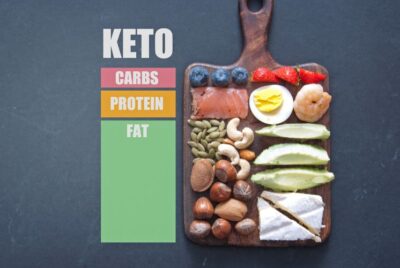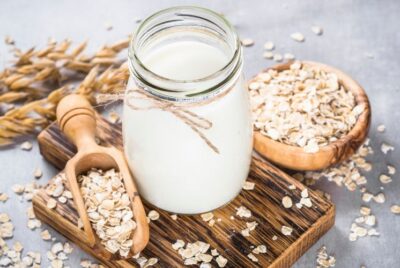Keto and Constipation: A Comprehensive Guide
Starting keto can feel like a total lifestyle upgrade—increased energy, fat loss, fewer cravings. But there’s one less glamorous side effect that many people don’t talk about: constipation.
If you’re feeling backed up on your low-carb journey, you’re not alone. This guide breaks down why constipation happens on keto, how to relieve it quickly, and how to prevent it long term while staying in ketosis.
Why Does Keto Cause Constipation?
Switching to a ketogenic diet often leads to changes in digestive habits, especially during the first few weeks. Here are the common causes:
1. Gut flora shift: A change in your diet affects your gut microbiome, which can disrupt digestion.
2. Low fiber intake: Reducing carbs often means eating fewer fruits, grains, and legumes, which are key fiber sources.
3. Dehydration: Keto has a natural diuretic effect, leading to more fluid loss and potential dehydration.
4. Electrolyte imbalance: Sodium, magnesium, and potassium levels can drop, affecting muscle contractions in the digestive tract.
Symptoms of Keto-Related Constipation
- Infrequent bowel movements (fewer than 3 per week)
- Hard or dry stools
- Bloating or gas
- Straining during elimination
If symptoms persist beyond 1–2 weeks or cause significant discomfort, consult a healthcare professional.
How to Avoid Constipation on Keto
1. Increasing Fiber Intake
Fiber isn’t just found in carb-heavy foods. There are plenty of keto-friendly, fiber-rich foods out there! These include non-starchy vegetables like broccoli, avocados, and leafy greens. Including these in your diet can improve your digestion while keeping you in ketosis.
2. Staying Hydrated
Water is critical, especially on keto. Not only does it prevent dehydration, but it also helps fiber do its job more effectively. So, remember to keep your water bottle close at all times.
3. Regular Exercise
Physical activity helps stimulate your intestines, improving bowel motility. A quick walk after meals or regular workouts can work wonders!
4. Magnesium Supplements
Magnesium is a natural laxative that can help alleviate constipation. Some people find taking a magnesium supplement beneficial. But, remember to consult your healthcare provider before starting any supplement regimen.
When to Seek Medical Help
1. Symptoms of Severe Constipation
While occasional constipation is normal, if it’s persistent and accompanied by symptoms like abdominal pain, bloody stool, or unexpected weight loss, it’s time to seek medical attention.
2. Chronic Constipation and Health Risks
Ignoring chronic constipation can lead to complications like hemorrhoids or rectal prolapse. So don’t hesitate to reach out to a healthcare professional if you’re concerned.
Keto Constipation Relief: Helpful Products to Support Digestion
If you’re experiencing constipation on keto, supporting your digestion with the right tools and supplements can make a big difference. A quality magnesium supplement—especially magnesium citrate or glycinate—can gently encourage regularity without harsh effects. Consider adding a daily dose of chia seeds or ground flaxseed, which are rich in fiber and keto-approved; this organic chia seed pack is a great pantry staple.
For hydration, a collapsible water bottle makes it easier to stay on top of your water intake throughout the day. Many keto followers also swear by electrolyte powders with magnesium and potassium to replenish what the body loses in ketosis—this sugar-free electrolyte blend is a top-rated option. And if you’re using MCT oil for energy, start slowly—this beginner-friendly MCT oil is perfect for easing digestion and keeping things moving.
Final Thoughts
Constipation is a common, but manageable, side effect of transitioning to keto. With the right adjustments—hydration, fiber, movement, and minerals—you can get back on track and keep things moving smoothly.
Keto isn’t just about cutting carbs. It’s about nourishing your whole body. Make digestion part of your success strategy.
Feeling better starts in the gut. Stay hydrated, eat smart, and don’t be afraid to tweak your routine. Your body will thank you.
FAQs
1: Can I eat high-fiber fruits on a keto diet? A: Some fruits are lower in carbs and can fit into a keto diet in moderation. Berries, for instance, are high in fiber and relatively low in carbs.
2: How much water should I drink on keto? A: While individual needs can vary, a good rule of thumb is to drink half your body weight (in pounds) in ounces of water each day.
3: Can I take fiber supplements on keto? A: Yes, fiber supplements can be used on a keto diet to help meet your fiber needs. However, whole foods are always the best primary source.
4: Is it normal to have digestive issues when starting keto? A: Yes, as your body adjusts to the dietary changes, you may experience some temporary digestive issues, including constipation.
5: Can too much protein on keto cause constipation? A: It’s not usually the protein, but rather the lack of fiber and hydration that can lead to constipation on a keto diet.




